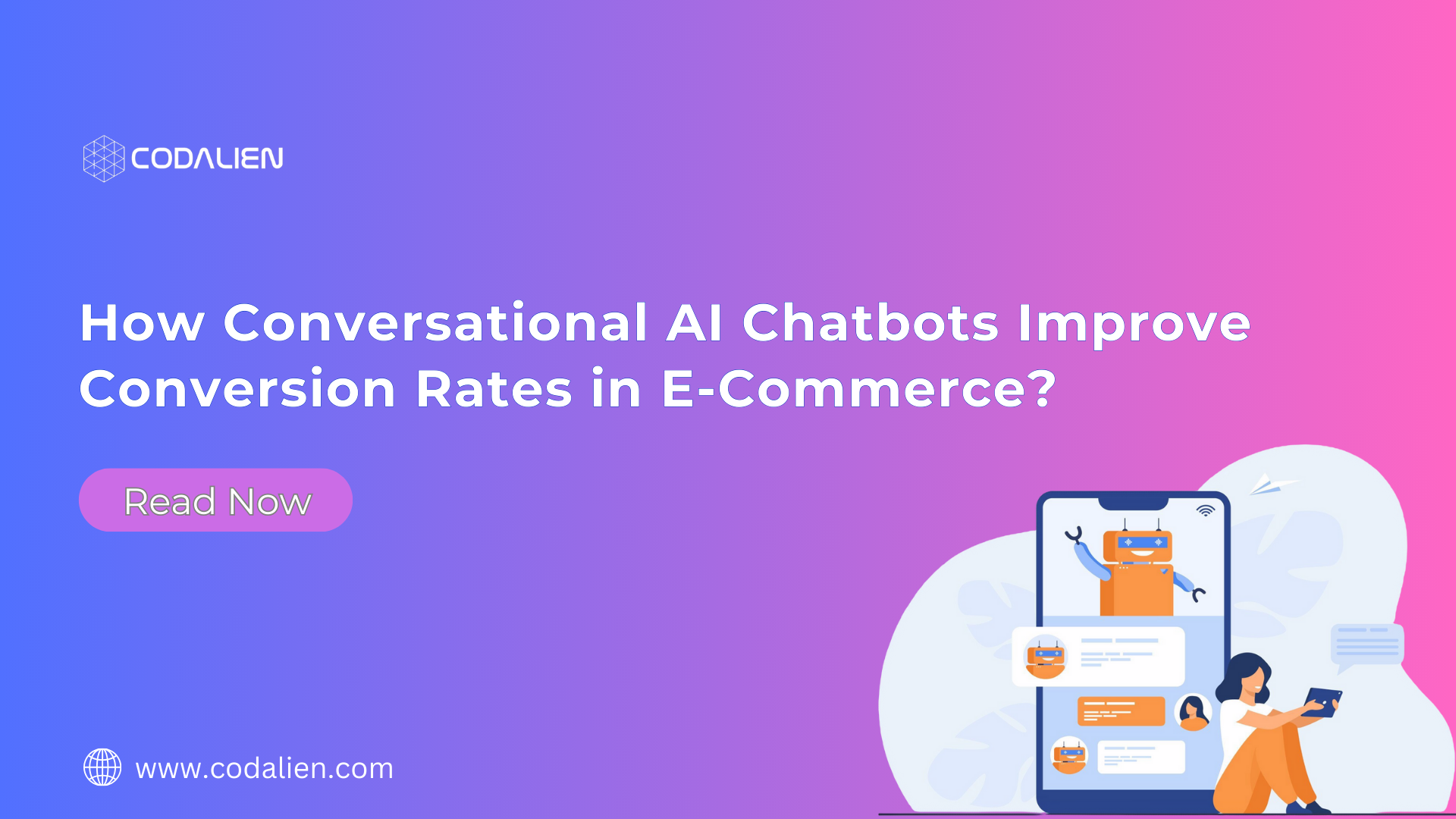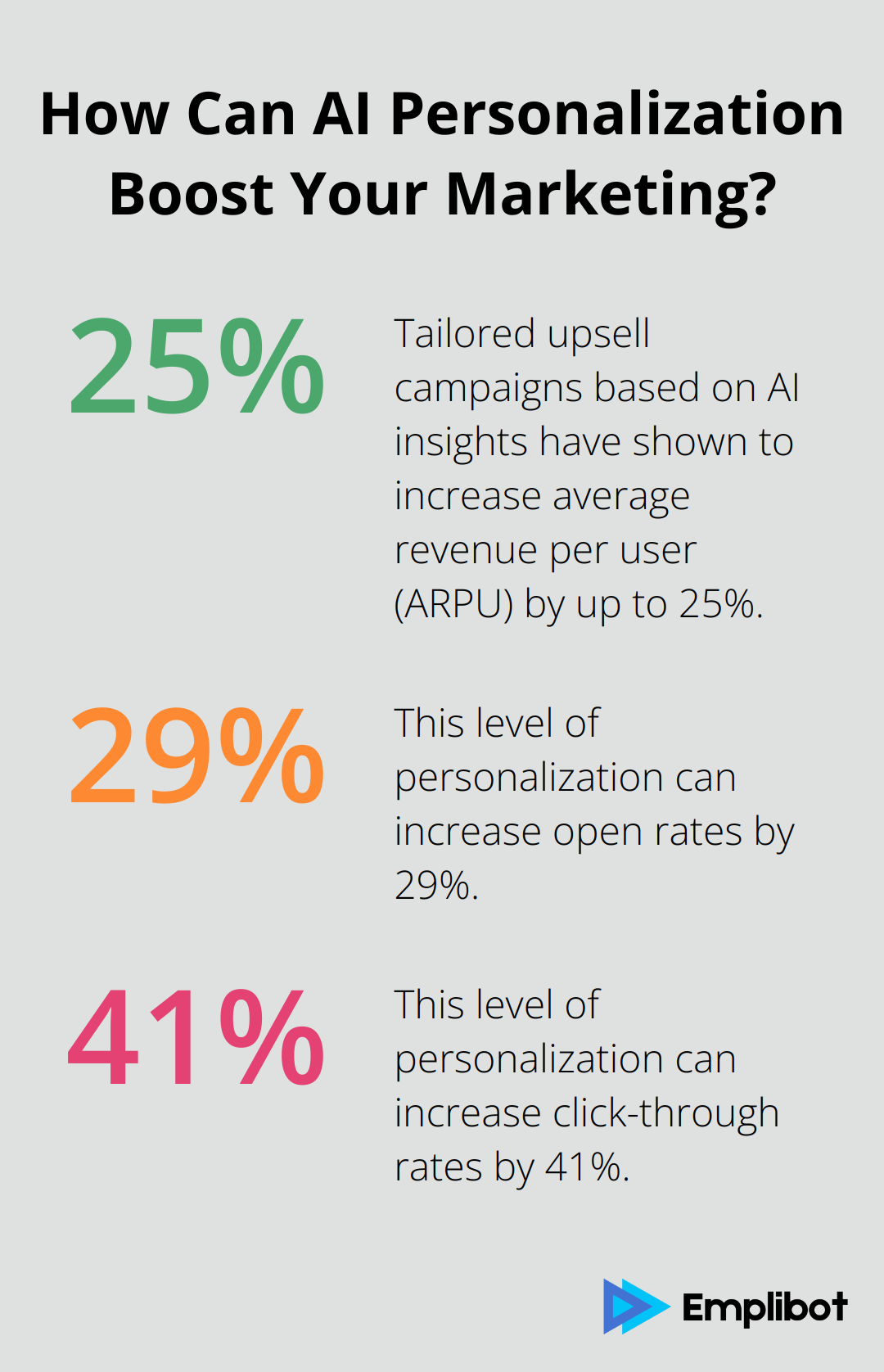The Role of AI in Enhancing User Engagement and Conversion Rates
Understanding AI's Impact on User Engagement
User engagement in the digital age is all about meaningful interactions. It is no longer a one-way street. Consumers expect personalized experiences that cater to their individual needs.
AI transforms customer interactions by making them more relevant and timely. Systems learn from every customer interaction, continuously improving and personalizing the experience.

AI-Driven Personalization Strategies
Tailored Content and Recommendations
AI algorithms analyze a customer's past behavior and preferences. This allows businesses to suggest products or services that are most relevant to them. Online retailers like Amazon use this to show customers products they are likely to purchase.
Dynamic content personalization customizes website content in real-time. This creates a more engaging experience. For example, Spotify uses machine learning algorithms to create personalized playlists.
Dynamic User Experiences: Real-Time Adjustments
AI can adjust user experiences in real time based on user behavior. This makes the online journey smoother and more intuitive. It's not just about recommendations.
It's about creating an experience that feels unique to every user. This can lead to increased customer loyalty.
Case Studies: Successful Implementations of AI Personalization
Netflix uses predictive analytics to recommend shows and movies. By analyzing viewing patterns, Netflix keeps users engaged with the platform. This proactive approach enhances user satisfaction.
Airbnb uses AI to enhance customer service. They categorize and prioritize customer queries, ensuring urgent issues are addressed promptly. This has improved response times and customer satisfaction rates.
Measuring the Effectiveness of AI in User Engagement
Key Metrics for Evaluating Engagement
Several key metrics help evaluate the effectiveness of AI in user engagement. Conversion rates often increase because customers see products that match their interests. Customer retention rates also improve.
Personalized experiences make shoppers feel valued, encouraging repeat visits. Average order value climbs as real-time recommendations suggest complementary products.
Analyzing Conversion Rates: How AI Contributes
AI impacts conversion rates by showing customers relevant products. This relevance reduces bounce rates and boosts average session duration. Tailored content keeps users engaged longer.
Higher engagement leads to more conversions. This is because users find what they need quickly and easily.
Tools and Technologies for Data Analysis
Machine learning algorithms are central to analyzing customer data. Natural language processing (NLP) enhances chatbots, making interactions more intuitive. Recommendation engines track user behavior and suggest relevant content.
Segmentation based on demographic and behavioral data ensures targeted marketing. Using data quality management tools ensures accurate data collection. These tools help businesses understand and act on user data effectively.

Best Practices for Implementing AI in User Experience
Establishing a Clear AI Strategy
A clear AI strategy starts with understanding your goals. Identify where AI can add the most value. For instance, AI can deliver tailored content through personalized email campaigns and targeted ads.
Integrate AI into existing marketing campaigns. This ensures a cohesive approach. Use AI to analyze customer data and segment audiences effectively.
Ensuring Data Privacy and Ethical Use of AI
Data privacy is crucial for building trust with users. Adhere to data protection regulations and handle customer data responsibly. Be transparent about how AI is used to personalize experiences.
Communicate data usage policies clearly. Offer opt-in/opt-out choices.
The Importance of Human Oversight in AI Interactions
Balancing AI automation with the human element is crucial. AI enhances efficiency but cannot replace human empathy. Maintain a balance to ensure effective customer engagement.
Human oversight ensures ethical decision-making. While AI can automate tasks, human judgment is still essential.
Future Trends in AI and User Engagement
Predictive Analytics: Anticipating Customer Needs
Predictive analytics uses AI to forecast future customer behaviors. Businesses can proactively offer products or services. This enhances customer satisfaction and engagement.
AI can identify signals that a customer might be at risk of leaving. This enables proactive steps to retain customers.
The Rise of AI in Omnichannel Strategies
AI will break down silos between different customer engagement channels. This provides a seamless customer experience across all platforms. Consistent messaging and service quality will be maintained.
Companies that leverage AI across multiple platforms will have a competitive edge. Customers will expect a blend of online and offline experiences.

Innovations on the Horizon: What to Expect in AI Development
Generative AI is one of the most promising technologies. It can create personalized content by understanding user preferences. Hyper-personalization uses advanced data analytics to offer more tailored experiences.
Customers will expect real-time responses and highly relevant content. Ethical frameworks and bias mitigation will be essential. Explore how AI can create tailored content recommendations that engage your audience.
Key Takeaways:
- AI enhances user engagement by providing personalized experiences tailored to individual preferences.
- Key metrics like conversion rates, customer retention, and average order value improve with AI personalization.
- Data privacy and ethical use of AI are crucial for building trust and ensuring responsible implementation.
- Human oversight remains essential to balance AI automation with empathetic and nuanced interactions.
- Future trends include predictive analytics, omnichannel strategies, and innovations like generative AI and hyper-personalization.
